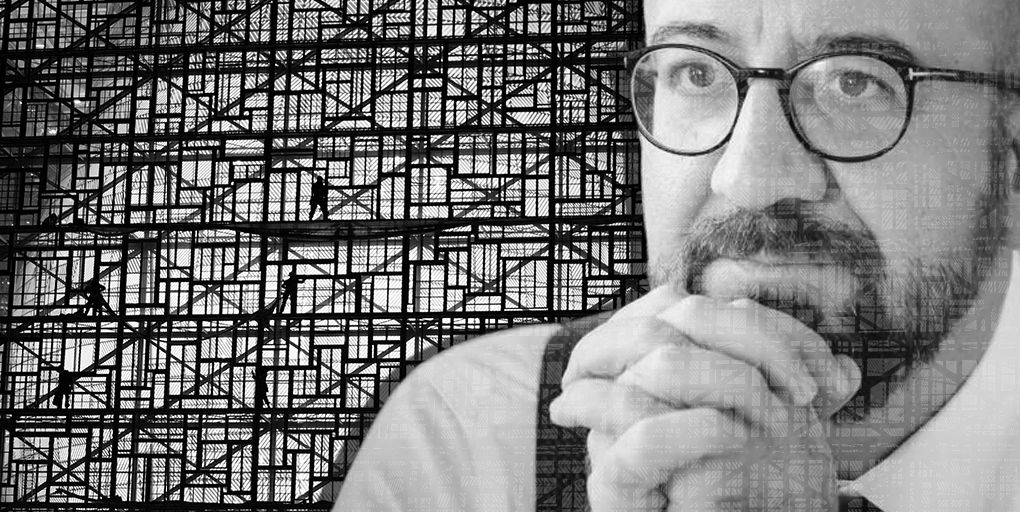All Eyes on Brussels as MFF Negotiations Enter Crucial Stage

Author: Cillian Rossi
Introduction
EU leaders will gather at a special meeting of the European Council today, 20 February 2020 to discuss the EU’s long-term budget for 2021-2027, the multiannual financial framework (MFF). The meeting was called by European Council President Charles Michel after he held individual talks with all 27 leaders in recent weeks, reflecting the urgent need to advance negotiations on the new MFF.
President Michel assumed responsibility for MFF negotiations in December 2019 after political agreement could not be reached on a proposal issued by the Finnish Presidency of the EU. In a bid to break the deadlock, President Michel presented a revised proposal on 14 February 2020. The overall size of his compromise budget amounts to 1.074% of EU27 GNI, a slight increase compared to that of the Finnish Presidency but less than the European Commission’s original May 2018 proposal.
Figure 1 sets out Ireland’s stance on the overall size of the MFF and desired funding levels for Common Agricultural Policy (CAP) and Cohesion Policy in relation to the proposals and negotiating positions of the European Commission, the European Parliament, the Finnish Presidency and President Michel.
| European Commission | European Parliament | Finnish Presidency | President Michel | Ireland | |
| Overall size | 1.11% of EU27 GNI | 1.3% of EU27 GNI | 1.07% of EU27 GNI | 1.074% of EU27 GNI | Open to increase |
| CAP Spending | Reduce by 15% | Maintain at current levels | Reduce by 13% | Reduce by 12% | Maintain at current levels |
| Cohesion Spending | Reduce by 10% | Maintain at current levels | Reduce by 12% | Reduce by 14% | Maintain at current levels |
Figure 1: Where Ireland stands in relation to the EU institutions.
The European Parliament’s negotiating team swiftly rejected President Michel's new proposal, saying it "falls well below the European Parliament’s expectations and those of the citizens".[1] It has also met with a mixed reaction from Member States. There are many competing visions for the size and composition of the new MFF and Member States have formed into alliances to build consensus around their specific demands. Who comprises these formal and informal groupings and what are their animating concerns?
Key Alliances
The Frugal Four: Austria, Denmark, Sweden and the Netherlands
The prime ministers of Austria, Denmark, Sweden and the Netherlands co-wrote an op-ed in The Financial Times on 16 February 2020 in which they called for their budget contributions to remain “stable” compared to previous years.[2] These wealthy Member States are net contributors to the budget and want to see the overall size of the MFF remain at 1% of EU27 GNI. They also insist on maintaining the system of rebates which the Commission proposed phasing out post-Brexit.
Friends of Cohesion: Bulgaria, Croatia, Czech Republic, Cyprus, Estonia, Greece, Hungary, Italy, Latvia, Lithuania, Poland, Portugal, Malta, Romania, Slovakia, Slovenia, Spain
This alliance wants to safeguard funding for Cohesion Policy at the same level as the 2014-2020 MFF in real terms. The Friends of Cohesion met in Portugal on 1 February 2020 at the invitation of Portuguese Prime Minister António Costa. Following the meeting, the grouping released a Joint Declaration reaffirming that no Member State should “suffer a sharp and disproportional decrease of its Cohesion allocation”.[3] However, even within this formal grouping there are divergent views. For example, Italy did not sign the Joint Declaration that emerged from the meeting in Portugal.
Friends of CAP: Austria, Bulgaria, Cyprus, Czech Republic, Croatia, Estonia, France, Greece, Hungary, Ireland, Latvia, Lithuania, Luxembourg, Poland, Portugal, Romania, Slovakia, Spain, Malta
Ireland is a member of this informal alliance that wants to maintain CAP funding at current levels. An Taoiseach Leo Varadkar held a video conference with President Michel on 12 February 2020 during which he once again emphasised the importance of protecting CAP spending “in the interest of rural Ireland and family farms”.[4] Though the overall size of the CAP budget was reduced in President Michel’s proposal, the balance of spending was shifted away from rural development funding towards direct payments to farmers. This was regarded as a victory for the Friends of CAP.[5]
The Road Ahead
The current MFF is due to expire on 31 December 2020. If this date passes without agreement, Article 312(4) TFEU stipulates that the provisions of the current MFF will be extended until a new framework is adopted. However, the absence of legal bases in specific policy areas would jeopardise the continuation of certain existing programmes and threaten the launch of new policies.
In order to ensure the new MFF is adopted in time to facilitate the orderly transition between the two programming periods, significant progress must be achieved at today’s European Council meeting. MFF negotiations have now lasted more than 20 months. During the negotiations on the 2014-2020 MFF, consensus at the level of the European Council had already been reached by this point. As President Michel said, “the time has come to reach an agreement at our level”.[6]
The EU’s 2019-24 Strategic Agenda states that the EU must have the financial capacity to “match its ambitions, attain its objectives and carry through its policies”.[7] The outcome of today’s negotiations will be a crucial indicator of whether the Member States are prepared to reconcile their differences in order to agree a long-term budget capable of meeting this aim. Though it may appear unlikely, the possibility of protracted negotiations culminating in a last-minute breakthrough over the weekend cannot be ruled out.
[1] https://www.europarl.europa.eu/news/en/press-room/20200218IPR72822/president-michel-s-mff-proposal-not-acceptable-for-parliament
[2] https://www.ft.com/content/7faae690-4e65-11ea-95a0-43d18ec715f5
[3] https://www.portugal.gov.pt/download-ficheiros/ficheiro.aspx?v=c6825828-42dc-4090-8378-929c760c58a3
[4] https://merrionstreet.ie/en/News-Room/News/Taoiseach_speaks_to_EU_Council_President_Charles_Michel.html
[5] http://capreform.eu/president-michels-solution-to-the-mff-conundrum/
[6] https://www.consilium.europa.eu/en/meetings/european-council/2020/02/20/-2-20-special-euco-mff-animation/
[7] https://www.consilium.europa.eu/media/39914/a-new-strategic-agenda-2019-2024.pdf
